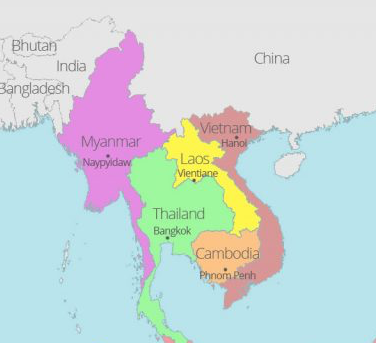News > Immigration In The United States
Alert to immigrants from Burma and Laos
Posted on Jul 12 2018
July 12 – The U.S. State Department this week increased pressure on Laos and Myanmar (Burma) to issue travel documents that would enable the United States to deport people to those countries. On July 10, in a move to put pressure the two governments, the State Department ordered visa restrictions on some government officials, employees, and family members in Myanmar (Burma) and Laos. While deportations to these two countries still remain on hold, it is not possible to tell if or when that may change.
Minnesota is home to one of the largest populations of Hmong residents and citizens of Laos. For decades, Laos has been unwilling to accept Hmong Lao citizens who have been ordered deported by the United States. Many Hmong community members believe because they came as refugees or because they provided military service to the United States, they cannot be deported. This is not true.. Both the Obama and Trump administrations have sought to convince Laos to accept deportees. This current move marks renewed effort by the United States to change the deportation acceptance policy in both countries.
Legal permanent residents, refugees, and asylees are in danger of deportation if they have been charged, convicted, or pled guilty to certain crimes. Anyone from Laos or Myanmar who has been ordered deported by an immigration judge, no matter how long ago, is the focus of this new push by the Administration.
“Anyone already ordered deported or in danger of deportation should seek legal counsel from a deportation defense expert immediately,” said John Keller, executive director of the Immigrant Law Center of Minnesota. “These are complicated cases, some spanning many years with many changes of law and procedure. Only qualified deportation defense attorneys have the experience to give the needed representation.”
“No one should be complacent because of a country’s past refusal to accept deportees,” said Keller. “Under our current strict and unforgiving deportation laws, it does not matter if you came as a child or as a refugee. It also doesn’t matter if you assisted U.S. forces in the war in Vietnam, or have U.S. citizen children or spouses. As we’ve seen with Cambodia and Vietnam, countries under extreme U.S. pressure often change their policies and begin accepting their citizens whom the United States has ordered deported. Laos or Myanmar’s current refusal to accept their citizens could change at any time under continuing U.S. pressure. The best thing anyone who is at risk for deportation can do right now is to proactively seek qualified, expert deportation defense. They need legal advice to examine both the past history of the case and any potential new defenses to deportation.”
The Southeast Asia Resource Action Center denounced the DHS announcement, saying in part:
“The Department of Homeland Security (DHS) justifies this policy shift by emphasizing the potential release of those with criminal convictions due to their inability to deport from the United States. What DHS fails to mention is that a majority of these community members are lawful permanent residents who came into the country as refugees, and have already served their time in prison for old convictions, transformed their lives, contribute to their communities, and now support U.S. citizen families. This misguided and false guise of national security does nothing more than to fuel an anti-immigrant agenda determined to keep families separated.”
The Trump administration has targeted permanent legal residents for deportation because of current arrests or even because of years-old criminal convictions. Some immigrants from Burma and Laos and other “recalcitrant countries” have had orders of deportation entered, but have not been deported because their countries of nationality would not issue travel documents.
“Ultimately, without a travel document issued by an alien’s home country to confirm identity and nationality, ICE cannot complete the removal process of most aliens, with very limited exceptions,” the Department of Homeland Security said in a July 10 press release.
Burma and Laos were already on the U.S. recalcitrant country list, and this week’s visa sanctions mark a higher degree of pressure. The recalcitrant country list includes Cuba, China, Eritrea, Iran, Cambodia, Hong Kong, Laos, Myanmar and Vietnam.





